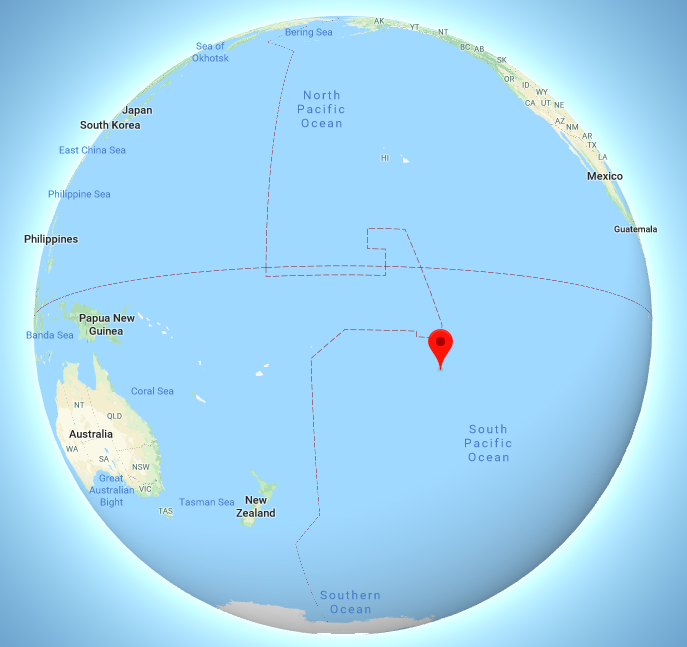Because of the way that flat maps are drawn with the Atlantic Ocean in the middle and the Pacific Ocean split and placed at the left and right extremes, it is easy to not realize how big the latter ocean is. Google maps now shows maps on a spherical basis and if you zoom out, you get a view of how the ocean covers pretty much half the globe. You see the Americas on the right edge, Asia on the left edge, and only Australia, New Zealand, and Papua New Guinea form the major land masses.


